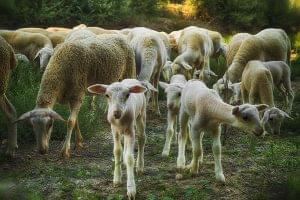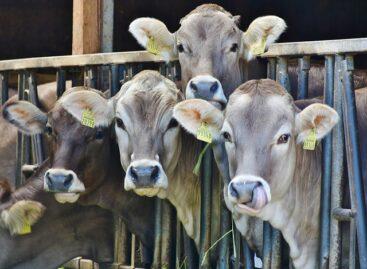These are the animal health conditions for the transport of live animals for commercial purposes within the European Union
The animal health conditions of live animal trade within the European Union (EU) (INTRA live animal trade) are determined by animal health regulations that are mandatory for all member states.

(Photo: Pixabay)
All live animal movements must be accompanied by an animal health certificate certified by an official veterinarian, certifying that the animals comply with the basic animal health requirements defined in the relevant regulations. In the case of “INTRA” trade in live animals between EU member states, there is no animal health border control!
Separation of “INTRA” EU delivery and EU “Import” delivery
The movement of animals from another EU member state is not governed by the EU import legislation, but by the so-called “INTRA” EU trade rules apply. The use of the word import is only relevant in the case of trade with so-called third countries outside the European Union. You can find more information on the commercial import of live animals and animal products at the following link:
Switzerland, Norway, Liechtenstein, Iceland
In the case of the so-called EFTA countries (Iceland, Norway, Liechtenstein) and Switzerland, the rules of “INTRA” trade must also be followed from an animal health point of view. There is an agreement between the EU and Switzerland, according to which Switzerland must be treated as an EU member state from an animal health point of view. According to this, there are no animal health border checks between Switzerland, EFTA countries and EU member states.
Relevant legislation:
• Regulation 2017/625/EU of the European Parliament and the Council (Regulation on official controls – OCR)
• Regulation 2016/429/EU of the European Parliament and of the Council (March 9, 2016) on infectious animal diseases and amending and repealing certain animal health legal acts (Animal Health Regulation)
• Commission Delegated Regulation 2020/688/EU (December 17, 2019) supplementing Regulation (EU) 2016/429 of the European Parliament and of the Council with regard to animal health requirements for the movement of terrestrial animals and hatching eggs within the Union
• Commission Implementing Regulation 874/2011/EU (August 31, 2011) on the classification of certain goods according to the Combined Nomenclature (CN codes)
• Executive Regulation 2019/1715/EU of the Commission (September 30, 2019) on the establishment of rules for the operation of the information management system of official controls and the system elements (Decree on the information management system of official controls, IMSOC Regulation)
EU harmonized INTRA certificate samples:
• Regulation/EU 2021/403 – animal health certificate samples required for intra-EU and import shipments of certain terrestrial animals and propagating materials – “TERRE”
• Regulation 2020/2236/EU – animal health certificate samples required for shipments containing aquatic animals and certain products of animal origin derived from aquatic animals – “AQUA”
Attention! The referenced regulations are constantly updated, so it is always necessary to visit the latest modified version on the EURLEX legislation search page.
For the transport of live animals within the EU, an animal health certificate recorded on the so-called TRACES system-INTRA module is required, which is certified by the regional veterinarian of the place of origin.
More information about the territorially competent district offices: https://jarasinfo.gov.hu/
More information on using the TRACES system: https://portal.nebih.gov.hu/traces-allat
Nébih
Related news
ENAR data reconciliation for cattle, sheep and goat, pig and poultry farmers is underway until the end of March
🎧 Hallgasd a cikket: Lejátszás Szünet Folytatás Leállítás Nyelv: Auto…
Read more >European Court of Auditors: EU Commission proposals affecting the common agricultural policy may cause uncertainty
🎧 Hallgasd a cikket: Lejátszás Szünet Folytatás Leállítás Nyelv: Auto…
Read more >Related news
GDP growth in OECD member countries slowed to 0.3 percent in the last quarter of last year
🎧 Hallgasd a cikket: Lejátszás Szünet Folytatás Leállítás Nyelv: Auto…
Read more >KSH: in the fourth quarter of last year, investment performance was 1.3 percent lower than a year earlier
🎧 Hallgasd a cikket: Lejátszás Szünet Folytatás Leállítás Nyelv: Auto…
Read more >








